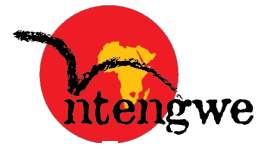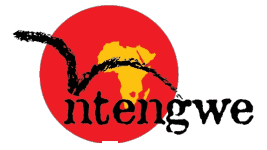Food & Nutritian
Globally, malnutrition is the underlying cause of nearly 3.1 million child deaths each year. Both the Zimbabwe National Nutritional Survey and the Multiple Indicator Survey have proved that Lupane, Hwange and Binga districts face serious nutritional challenges. Cases of stunting, underweight and wasting are prevalent in these areas.
Under-nutrition is also estimated to account for a 10 percent reduction of lifetime earnings, placing a huge burden on household and malnutrition leads to poor health conditions.
Well-nourished children are better equipped to fight disease, learn and contribute to society. Girls with good nutrition become strong women and have healthier children and more prosperous families. Societies with well-nourished populations are more productive, economically viable and secure.
Ntengwe’s Response to Malnutrition
Ntengwe is on the ground, working with organized networks of grassroots women to reverse malnutrition, hunger and food insecurity in rural livelihoods. We work with partners at local and national level, community and household levels to prevent malnutrition by bringing key stakeholders together, such as community health workers and government departments to reach women before they become pregnant. While our key focus is on mothers and children, our strategies actively foster family support from fathers, grandmothers and caregivers.
Our integrated interventions are delivered through health workers and volunteers in the community. We use community-based approaches, such as peer and community mobilization support, and involve multiple health sector stakeholders to:
 promote the availability of and accessibility to quality and sustainable maternal and child health services, focusing on reducing new-born and maternal mortality, using interventions such as community education through dialogues;
promote the availability of and accessibility to quality and sustainable maternal and child health services, focusing on reducing new-born and maternal mortality, using interventions such as community education through dialogues;- address adequate food and nutrient intake, effective feeding and care practices, and protection against infectious diseases;
- support breastfeeding, feeding during illness, food preparation, hygiene and health care-seeking;
- work to increase demand for services and better practices through social and behavior change communications;
- create linkages to community health centres as to support the healthy transition of children to adolescence and adulthood.
We emphasize effective, integrated approaches to address the range of underlying causes of malnutrition and increase our reach. Our programs include evidence-based strategies to improve access to safe food and food production through the integration of nutrition-sensitive agriculture; water, sanitation and hygiene (WASH); social protection; and livelihoods interventions.
Through such integrated activities, we take a transformative approach to gender, building women’s resources, skills and participation in policy and community decision-making processes, empowering women through income generating activities.
POLICY AND ADVOCACY INITIATIVES
Galvanizing and capitalizing on political commitment for nutritional local and national levels is critical to ensure progress within communities. In pursuit of these aims, we support the Scaling Up Nutrition (SUN) movement, a global network active in 60 countries.
On 6 June 2011, the Republic of Zimbabwe joined the SUN Movement with a letter of commitment from the Director of the Food and Nutrition Council. At the time, Zimbabwe had prioritised nutrition at the highest level with the Food and Nutrition Security Policy and established a Food and Nutrition council to convene cross-sector stakeholders. The Zimbabwe Civil Society Alliance (ZCSOSUNA) helps ensure that the voices of local communities are taken into account in national and global financial, legal, programmatic and political commitment to scale up nutrition. SUN unites civil society, governments, businesses and other partners to work toward a world without hunger or malnutrition.
We work with grassroots women-led groups in nutrition planning and policy. Women negotiate with local governments to help implement sustainable practices and to increase agricultural practices to meet the Sustainable development Goal 2. Together, in partnership with women we hold governments accountable to strengthening national nutrition policies and plans.

